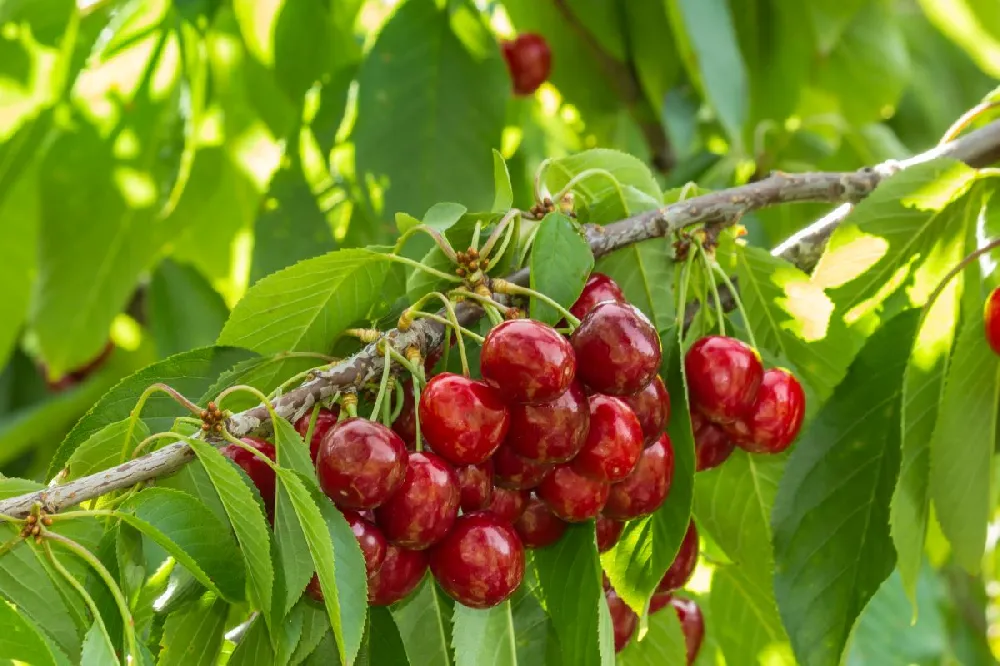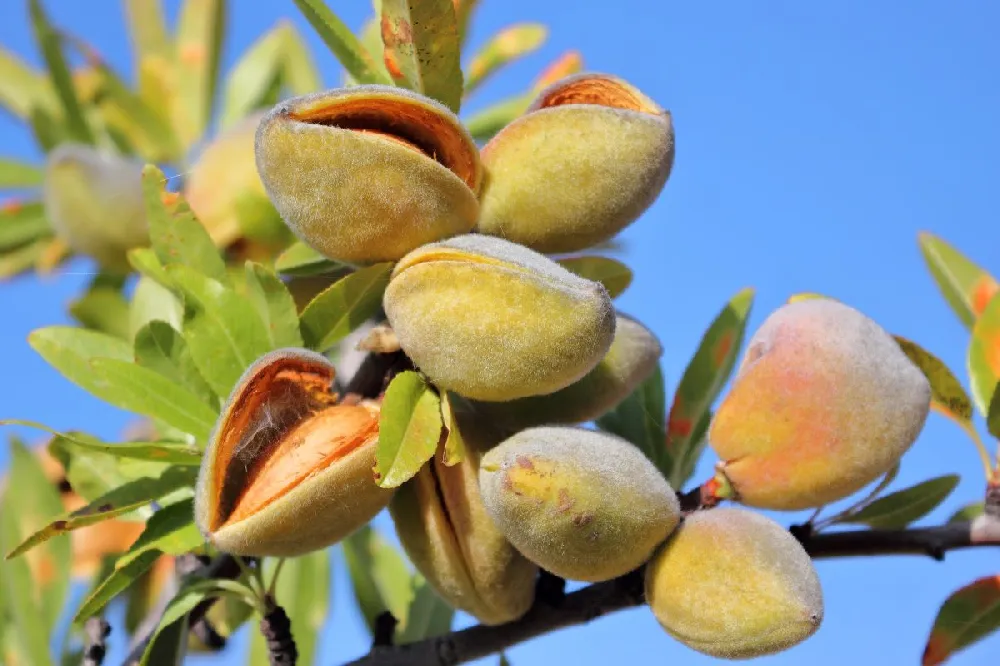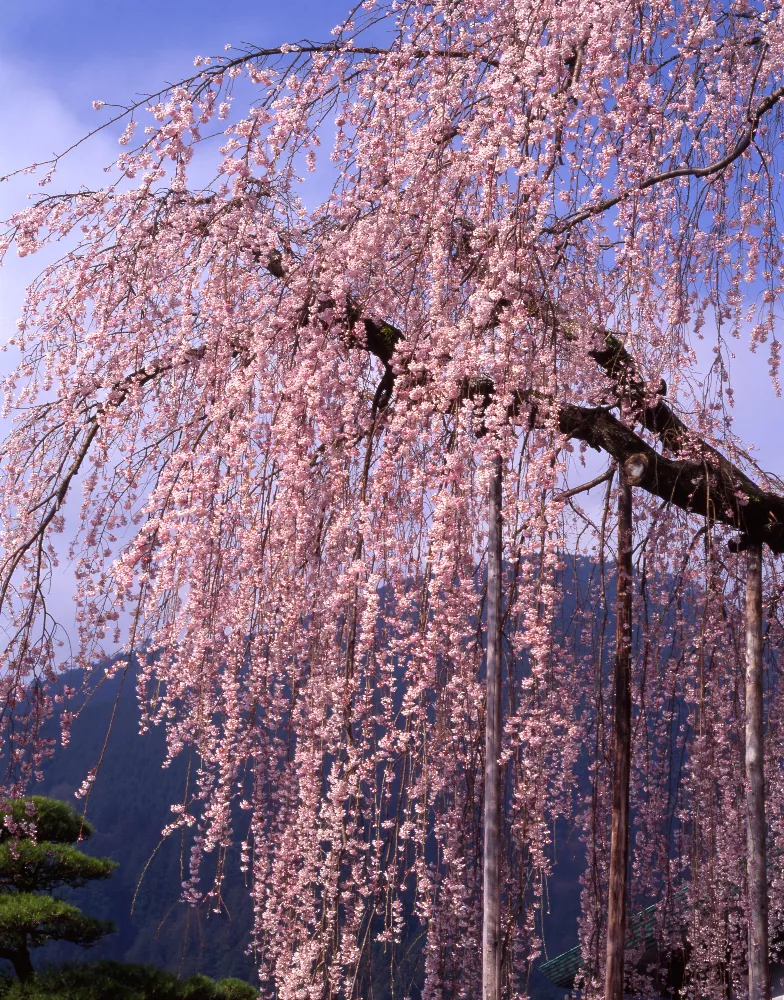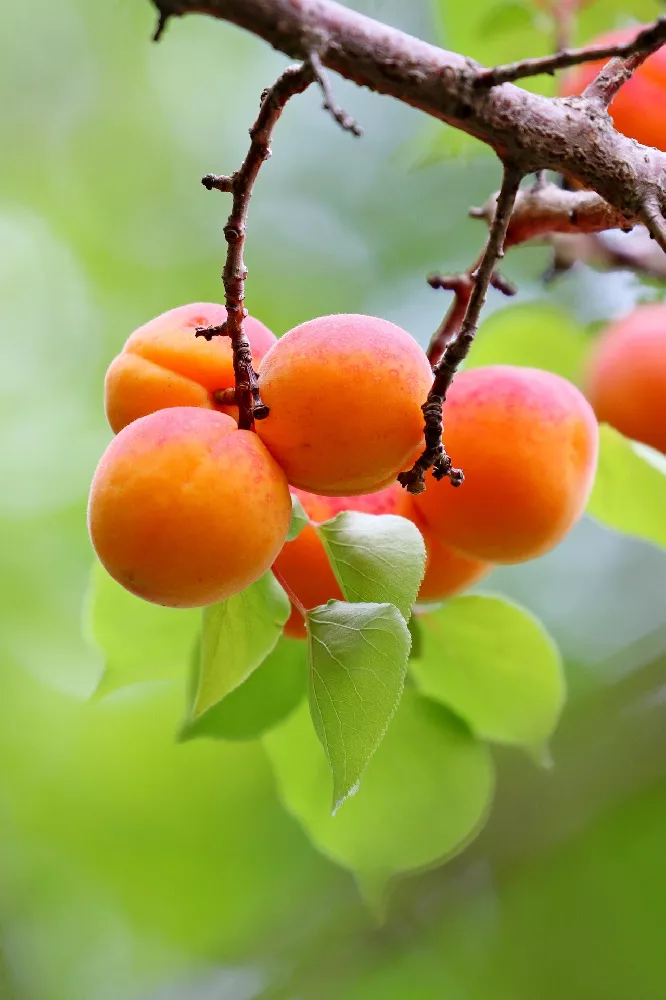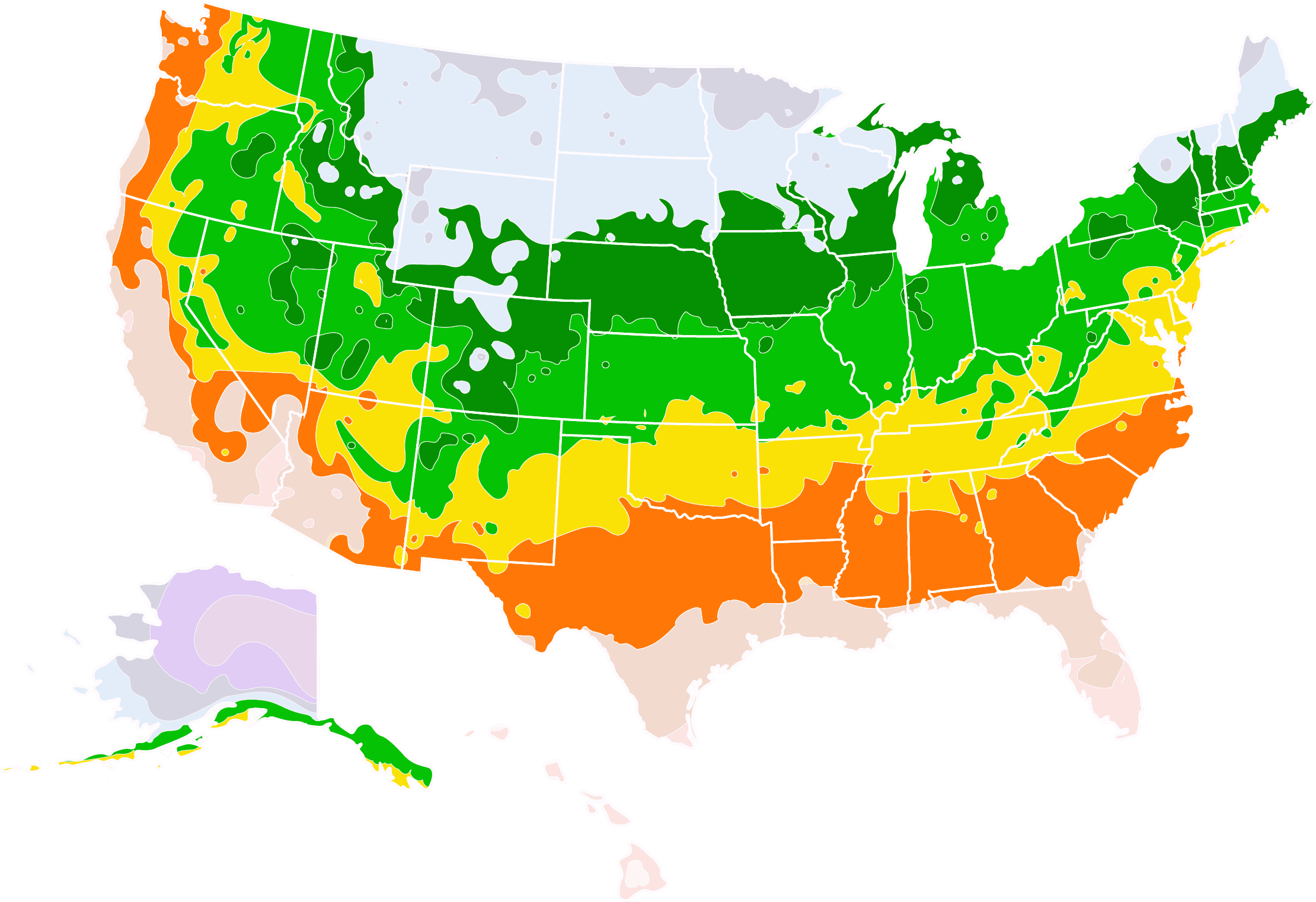- Home >
- Cherry Trees >
- Snow Fountains Weeping Cherry Tree
Snow Fountains Weeping Cherry Tree for Sale - Buying & Growing Guide
- Ships in 1-2 days
- 1-Year Warranty Eligible
- Pots or accessories are not included unless specified in the product options.
Shipping Details:
Once your order is shipped, you’ll receive an email with a tracking number and estimated delivery date. Most orders ship immediately, but some items are seasonal and may only ship in spring or fall. These products are noted on the website.
Native to a broad region that stretches across the United States, the plant known as the Snow Fountains® weeping cherry tree adds ornamental value to the landscape during nearly all parts of the year. This small to medium-sized tree species, known as Prunus x 'Snofozam,' reaches about 15 feet tall at most and has long arching branches that hold abundant brilliant white flowers in spring and brilliant foliage in fall.
- Manageable size that allows this tree to fit well in many garden locations.
- Impressive spring flowers that cover the entire canopy with white petals.
- Lush deciduous foliage that turns orange and gold in the fall.
Plant Care
Sunlight

Prefers to grow in full sun locations that receive at least six hours of light per day.
Watering
Water deeply whenever the top layer of soil appears dry. Water about twice per week during hot spells.
Fertilizing

Fertilization needs are generally low for this plant. Mixes with lower amounts of nitrogen often work best.
Planting and Care
Planting instructions
To plant a Snow Fountains weeping cherry tree, you should begin by digging a hole that is twice as wide as the root ball and equal in depth to the root ball’s height. Be sure to fill that hole with well-draining soil that is rich in organic nutrients.
While Snow Fountains weeping cherry trees can survive in partial shade conditions, they will perform much better when they receive full sunlight. In full sunlight, a Snow Fountains weeping cherry tree is more likely to produce the copious blooms for which it is well-known.
Watering and nutrients
Snow Fountains weeping cherry trees do best when they grow in moist soils. The best way to supply the moisture these trees need is to water slowly and deeply each time you notice the top layer of soil has become dry. Take your time in supplying water to ensure that the moisture permeates deep into the ground and reaches all of this plant’s roots.
Generally, it’s best to fertilize these trees in the early spring with a formula that is relatively low in nitrogen. However, other amendments, such as compost, will work for this tree as well.
Pollination
Snow Fountains weeping cherry trees typically rely on insects for their pollination. During the spring, the flowers of these trees attract several important pollinator species, including butterflies and other insects.
Most Snow Fountains weeping cherry trees are also self-fertile, meaning that they do not need a partner plant to bear fruit following pollination. When a Snow Fountains weeping cherry tree experiences successful pollination, it will produce fruit. These are often small and hold minimal ornamental value compared to the flowers and foliage.
Pruning
The best time of year to prune a Snow Fountains weeping cherry tree is in the winter when the tree is in a dormant phase. When pruning, use sterile pruning tools and aim to remove any branch that is damaged, diseased, dead, or rubbing against another branch.
If you want your weeping cherry to look its best, you should be wary of removing or shortening long arching branches. These branches contribute to the overall form of this tree, which is part of the reason so many people want to plant it.
Pest, diseases, and animals
At times, Snow Fountains weeping cherry trees are prone to more disease and pest issues than many other ornamental plants. Aphids and other small insects are likely to gather on this species. Mold, fungus, and bacterial infections can also occur.
With that said, many pest and disease problems for Snow Fountains weeping cherry trees are avoidable. Most problems arise when the soil conditions are too dry or otherwise problematic. Diseases are also more likely when your Snow Fountains weeping cherry tree shows signs of damage to its bark.
Achieving maximum results
Often, the main goal of growing a Snow Fountains weeping cherry tree is to produce beautiful flowers that will serve as a prominent accent to the rest of your garden. If you share this goal, ensure that your tree grows in a full sun location, as that will produce the best flowers. You should also be wary of snow accumulations and wind damage. Snow Fountains weeping cherry trees can be susceptible to breakage in response to both those issues.
FAQs
Are Snow Fountains weeping cherry trees poisonous to pets?
Unfortunately, just about every cherry tree contains toxins that are harmful to pets. Chemical compounds called cyanogenic glycosides are present in most parts of these plants, including the leaves, flowers, and seeds. Upon ingestion, these chemicals cause cyanide poisoning, which can result in severe symptoms and can lead to comas or death in high enough doses. As such, gardeners with pets who roam their yards should reconsider growing a cherry tree.
How long do Snow Fountains weeping cherry trees live?
Snow Fountains weeping cherry trees have a somewhat short lifespan relative to many woody plants you may grow in your yard. Even with the right care and attention, Snow Fountains weeping cherry trees tend to live no more than two decades. At times, the lifespan of one of these trees may be 10 years or less. Still, during that relatively short time, a Snow Fountains weeping cherry tree will grace your yard with incredible spring flowers if you give it the proper maintenance.
Are Snow Fountains weeping cherry trees messy?
Fortunately, Snow Fountains weeping cherry trees are not too messy. The main reason for this is that the fruits of this tree are quite small, which means they won't be too noticeable when they fall to the ground. However, as a deciduous tree, this species will shed its leaves in the fall, which you'll need to rake or pick them up as you would with any other deciduous tree.
Compare Similar Products
You can't add more Product Name - Product size to the cart.
OK



